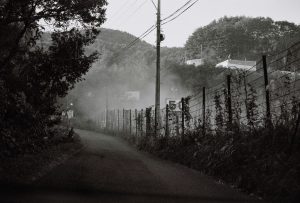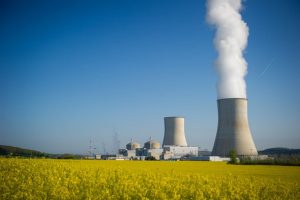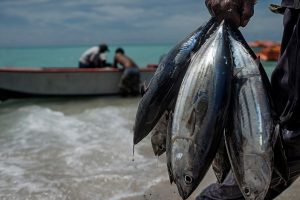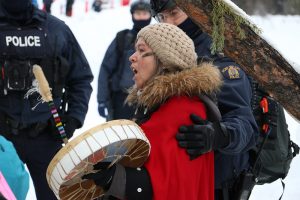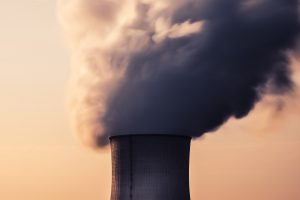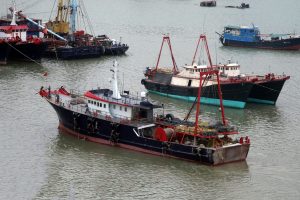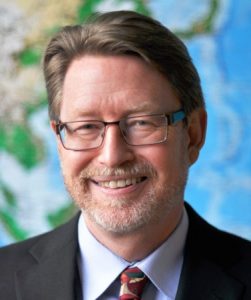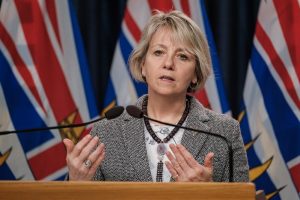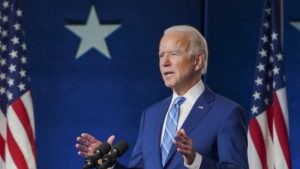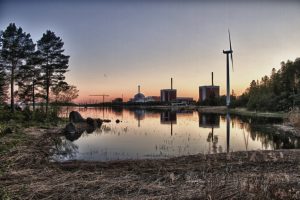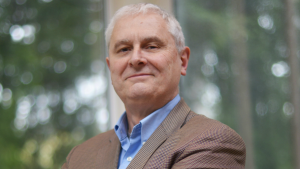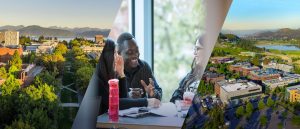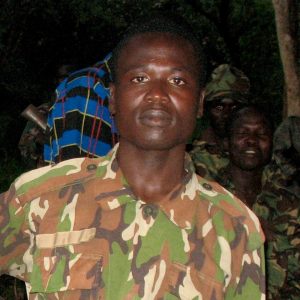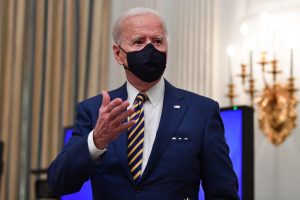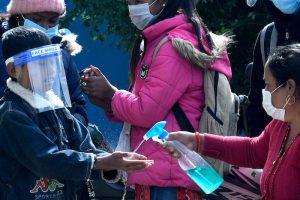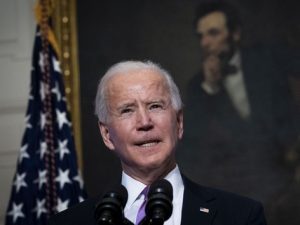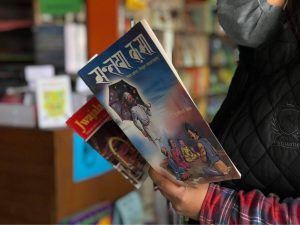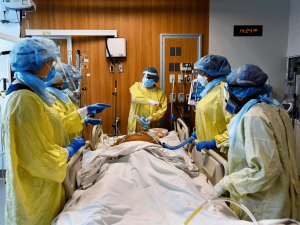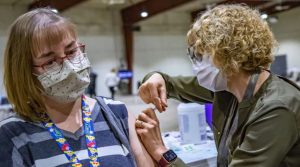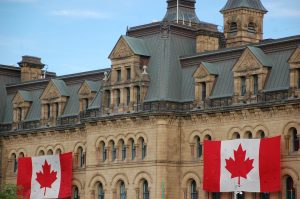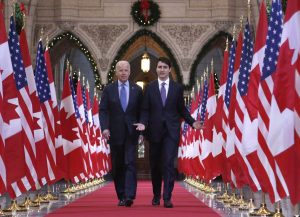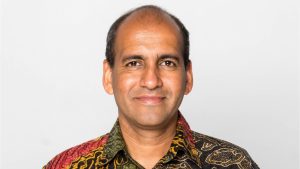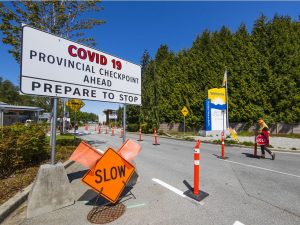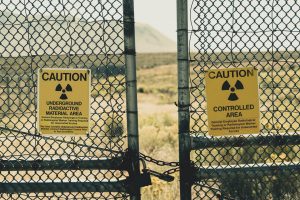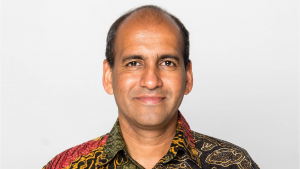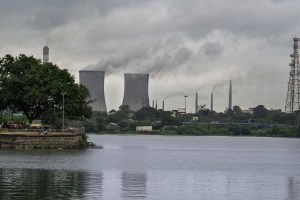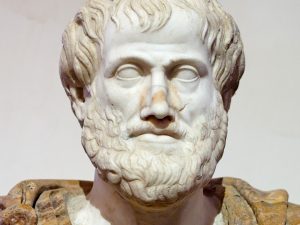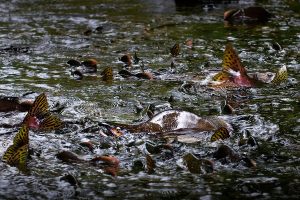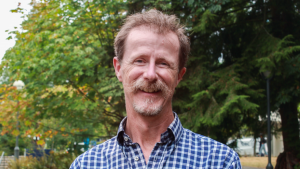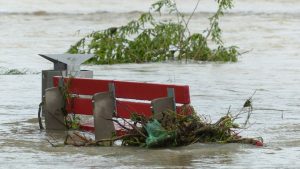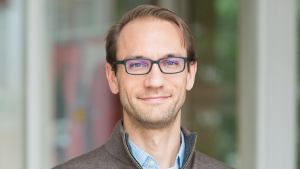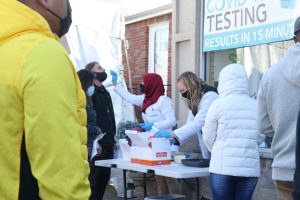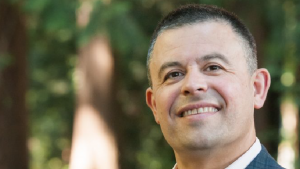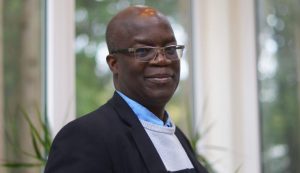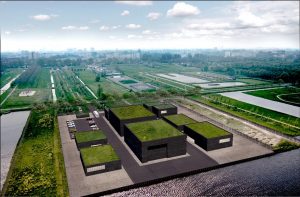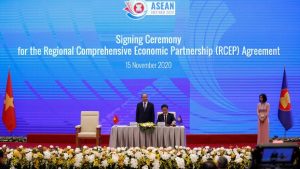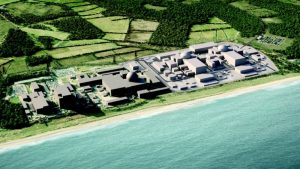The Fukushima Accident: Do We Have the Wisdom to Move Forward?
As the 10th anniversary of the Fukushima accident approaches, SPPGA Director Allison Macfarlane discusses how to reconceive the risks of nuclear power plants in the process of transitioning away from the carbon economy.
Small Modular Nuclear Reactors and Net-Zero Carbon Emissions by 2050? The Math Doesn’t Add Up
Although small modular nuclear reactor advocates claim that net-zero carbon emissions are achievable by 2050, SPPGA Professor Ramana argues that the evidence of this is non-existent and highly unlikely.
A Thin Conception of Time
Discussing SPPGA Postdoctoral Fellow Vincent Ialenti’s book, this article analyzes his idea of a “thin conception of time” where communities, businesses, and individuals live in short time spans; a cacophony progressing from one topic to another.
We Can’t Keep Leaving Reconciliation to the Courts
Professor Sheryl Lightfoot (SPPGA, Political Science) analyzes Canada’s adoption of the UN Declaration of Indigenous Rights, and argues that reconciliation efforts should not be left in the hands of the courts.
‘Game Is on’ as China Launches Plan to Win Tech Cold War
In its 14th five-year plan, China laid out its vision for how the country’s post-pandemic recovery can help assert its economic rise. Professor Paul Evans is quoted in The Logic on the US-China power struggle.
China Gives Nuclear Power a Fresh Push in Drive to Go Green
As China plans to invest more in nuclear plants, SPPGA Professor Ramana is surprised that policymakers are persisting on this expensive source of electricity, despite the rest of the world slowing down their investments in nuclear energy.
Canada-China Ties Need Reset, Experts Urge
SPPGA Professor Paul Evans describes the relationship between China and Canada as a “painful moment,” and believes that a new and more active way of engaging discussion surrounding China is important for redefining the bilateral relationship.
What is Happening in the South China Sea?
On the podcast show, The Shift, SPPGA Professor Paul Evans talks about the on-going dispute in the South China Sea and how that impacts the global economy, and why it should matter to Canada.
Problems with the Prototype Fast Breeder Reactor
For two decades, the story of India’s Prototype Fast Breeder Reactor is one of rising costs, delays and never-ending promises of commissioning. “Shouldn’t India then stop pursuing the breeder programme?” say Prof Ramana & MPPGA Student Nidhi Sharma.
Canada’s Parliament Vote to Name China’s Actions in Xinjiang Province a Genocide
What does it mean for Ottawa’s already fragile diplomatic relationship with China? Hear from SPPGA Professor Paul Evans.
Escalating Tensions in the South China Sea Could Have Major Implications to the Global Economy
Professor Paul Evans discusses what this could mean for trade, resources, and international relations.
Threats Against Dr. Bonnie Henry ‘Unacceptable,’ B.C. Health Minister Says
Professor Heidi Tworek (SPPGA; UBC Department of History) notes that Bonnie Henry has taken on a uniquely prominent role during the pandemic. As a result, she has faced unacceptable levels of threats and criticisms from the public.
New White House Regime, New Asia Opportunities for Canada
There is hope for new Asia-pacific relationships, but Professor Yves Tiberghien (CJR Co-Director; UBC Political Science) says the economic implications for Canada in Asia remains unclear.
Black Hair is Black History
To promote broader acceptance of natural hair and to diminish hair discrimination, MPPGA student David Markwei features a collection of photos and the significance behind the diverse hairstyles within the Black community.
MPs to Vote on Whether to Declare Chinese Abuses Against Uyghur Muslims a Genocide
Professor Timothy Cheek (SPPGA; UBC Department of History) was interviewed on a motion by Conservatives calling on Canada to formally declare crimes against Uyghur Muslims in China a genocide.
Human Rights Adviser Presses Trudeau to Call out China’s Actions in Xinjiang as Genocide
SPPGA Professor Paul Evans states that given the country’s history, Canada would be on firmer ground “to attract others to this cause if we labelled Chinese actions as ‘cultural genocide'”.
Cleantech: B.C.’s $100-billion Opportunity
SPPGA Adjunct Professor Andrea Reimer talks of a $100-billion opportunity in BC for clean economic growth, with our biggest opportunities being in cleantech.
Health Professionals Cautiously Optimistic as B.C.’s Covid-19 Vaccination Program Begins in Earnest
After a month of delays, the number of people vaccinated in B.C. is set to see a dramatic increase in the coming weeks. Professor Heidi Tworek (SPPGA; History) addresses vaccine hesitancy as vaccines roll out to the general population.
Alumna Spotlight: Adrianna Spyker
When Adrianna Spyker went to Ecuador as part of her medical program, she was struck by the social and political inequality. “When I came back, I was determined to change the focus of my study.” After receiving her MPPGA degree, she now works as a Community Health Specialist, promoting cooperative approaches to current and emerging issues.
Canada’s China Problem
SPPGA Professor Paul Evans comments on the debate of whether China’s treatment of its Uighur minority meets the definition of genocide, as politicians call for a relocation of the 2022 Olympic Winter Games.
Declaration Against Arbitrary Detention (Cantonese)
Professor Paul Evans comments on the new Canadian-led international declaration denouncing state-sponsored arbitrary detention of foreign nationals for political purposes (Cantonese).
Brazil’s Angra 3 Nuclear Reactor: A Political Undertaking, Not a Common Good
A questionable move by Brazil’s politicians to resume a costly nuclear energy program in place of cheaper renewables is mired in political corruption, says Carolina Basso. Basso’s article came out of a report she wrote for the Simons Award in Nuclear Disarmament and Global Security.
‘Let’s Go Learn’: Not for Canada to Tell China It’s Wrong, N.S. Premier Stephen Mcneil Says
“Outgoing Nova Scotia Premier Stephen McNeil had some provocative advice recently.” Professor Paul Evans comments on what he calls Mcneil’s “textbook” China strategy.
Big Money, Nuclear Subsidies, and Systemic Corruption
In July, a $60 million bribery and corruption case came to light in Ohio. The guilty party—one of Ohio’s largest utility corporations. For years, the firm lobbied to continue operating its unprofitable nuclear plants, write Professor Ramana and MPPGA Alumna Cassandra Jeffery.
Mini Nuclear Reactors Offer Promise of Cheaper, Clean Power
As nuclear reactor makers pitch smaller, modular systems, SPPGA Professor Ramana says that the basic idea is flawed and that many of these expense reductions could ultimately increase their danger and create new safety risks.
This Black History Month, UBC Community is Hopeful for Change
For Black History Month, Professor Rashid Sumaila (SPPGA & UBC Institute for the Oceans and Fisheries) emphasizes how important it is for us to work together to address systemic racism. Find out more about UBC’s commitment to anti-racism and acknowledgement of the many achievements and struggles of Black people.
Research by Prof. Erin Baines and Justice and Reconciliation Project and the Conviction of Ongwen at the International Criminal Court
Previous research conducted by SPPGA Associate Professor Erin Baines and the Justice and Reconciliation Project in Uganda generated debate in Uganda and globally, and informed the defence of Dominic Ongwen at the International Criminal Court.
Trudeau’s Move
“The Canadian prime minister was using his father’s playbook when it came to China. But the game has changed.” Professors Paul Evans and Yves Tiberghien (SPPGA Faculty Associate; Political Science) share their insights.
Analysts See Hope in Biden Executive Order for B.C.-Washington Trade and Connections
SPPGA Professor Kristen Hopewell says that Biden’s commitments to a vaccination plan and executive orders to coordinate responses to the pandemic are positive steps towards warmer diplomatic relations with Canada.
Lost in Translation
At last count Nepal had 129 spoken languages, but even as new ones are identified, others are becoming extinct. Canada-based linguistic anthropologist Mark Turin worked with the Thangmi in Dolakha and Sindhupalchok to document their endangered language.
Lack of Transparency about Manitoba’s Vaccine Eligibility Plan Erodes Public Trust: Health Experts
Six weeks into Manitoba’s vaccination campaign, the province has yet to announce its plans for the wider community and many are concerned. Professor Heidi Tworek (SPPGA; History) weighs in.
Mongolians Are Chafing at the Government’s Anti-Covid Curbs
Mongolia’s success in curbing the pandemic has highlighted the wasted economic potential of its abundant livestock resources, which SPPGA Professor Julian Dierkes says needs drastic branding and quality control improvements.
Does Deplatforming Trump Set a New Precedent for Content Moderation?
There is a problem of focusing on the U.S. in platform governance, Professor Heidi Tworek (SPPGA; History) warns. The difference in response to the U.S. and Myanmar Rohingya genocide shows the platform’s inconsistent principles, she adds.
Canada to Face New Pressures to Confront China as Biden Advocates for a More United Approach
SPPGA Professor Paul Evans is hopeful that the Biden administration can bring U.S. back into institutions, he says in response to Biden’s pledge on a “united front of friends and partners to challenge China’s abusive behaviour.” (paywall)
It’s Cold, It’s Dark, We’re Tired. Canada, Meet the Covid-19 Wall
Professor Heidi Tworek (SPPGA; History) was quoted extensively on her team’s democratic health communications project in a story on Covid-fatigue.
Open Skies Treaty Could Still Be Saved if Biden Administration Reverses Withdrawal
SPPGA Professor Ramana says that, although it may take time, there are no obstacles to the US returning to the Open Skies Treaty under the Biden administration, which would enable signatories to exchange unarmed military surveillance flights.
Horgan Doesn’t Have to ‘Hem and Haw’ on Restricting Interprovincial Travel, Say Some Experts
In an article about interprovincial travel, Professor Gerald Baier (UBC Political Science & CSDI Acting Director) and other legal experts says Horgan should already know that travel restrictions are possible.
UN Committee Rebukes Canada for Failing to Get Indigenous Peoples’ Consent for Industrial Projects
In response to a letter regarding Canada’s failure to comply with the UNDRIP, Professor Sheryl Lightfoot (SPPGA & UBC Political Science) urges the federal government to take advice from the UN’s Expert Mechanism on the Rights of Indigenous Peoples.
Former U.S. Regulator Questions Small Nuclear Reactor Technology
In an article about small nuclear reactor technology, SPPGA Director Allison Macfarlane raises doubts about the feasibility of storage, alluding to the complexity of the shorter-term radioactivity of nuclear waste.
Clash of Powers: US-China Rivalry in Global Trade Governance
SPPGA Professor Kristen Hopewell discusses her book, “Clash of Powers; US-China Rivalry in Global Trade Governance”, and comments on the potential implications of the Biden administration on economic relations with China.
The Dangerous Inconsistencies of Digital Platform Policies
Recent events concerning “political violence, voting and vaccines” have exposed the inconsistencies in social media platform policies and the harm they can wreak, writes Professor Heidi Tworek (SPPGA; History.)
How Canadian Officials Can Communicate More Effectively During the Covid-19 Endgame
As we begin a new year, it may be time to reboot our COVID messaging for 2021, says Professor Heidi Tworek (SPPGA; History) in this co-authored piece.
New Small Modular Reactor Action Plan a Key Step for New Technology’s Growth amid ‘Incredible Demand,’ Says Industry Group
Canada’s new Small Modular Nuclear Reactor Action Plan has UBC experts doubtful that paper designs will be economical or environmentally viable in the long run. More from Prof. Ramana, Prof. Nadja Kunz (SPPGA & UBC Mining) and MPPGA Alumna Sarah Froese.
The U.S. Capitol Raid Was a Failed Self-coup Previously Seen in Dying Regimes
The “slow death” of democracy typically starts with constitutional violations, Professor Max Cameron (former SPPGA Acting Director; Political Science) writes in response to the factors under the Trump administration that triggered a failed self-coup at the U.S. Capitol.
UBC Expert Weighs in on Pro-Trump Rallies in Vancouver and Across the Globe
Amidst the pro-Trump rallies in Vancouver and across the globe, Professor Maxwell Cameron (former SPPGA Acting Director & UBC Political Science) warns of the impact that it may have on Canada, reminding us all of how important and vulnerable our democratic institutions are.
How Basic Lessons from Classic Philosophy Could Have Made Politician Think Twice About Their Trips Abroad
Drawing from the works of Aristotle, Prof. Maxwell Cameron (former SPPGA Acting Director & Political Science) argues that politicians must lead by being exemplary citizens, especially with their travel and safety decisions amidst the pandemic.
Biden’s Pick for Energy Secretary Could Mean Trouble for Alberta’s Oilpatch, Experts Say
Biden’s pick for energy secretary could mean trouble for Alberta’s oilpatch, experts say. SPPGA Prof George Hoberg weighs in.
Churches Breaking COVID-19 Rules Still Get Government Tax Breaks
Since encouraging churches to comply with COVID-19 restrictions is the primary goal, Professor Maxwell Cameron (former SPPGA Acting Director & Political Science) argues that withholding tax exempt status could do more harm than good.
COVID-19 May Have Halted Massive Protests, but Youth Are Taking Their Fight for the Future to the Courts
Professor David Boyd (SPPGA & IRES) says that if the Canadian youth win this appeal over climate inaction, it will set a strong precedent for change in environmental law.
‘2 Lost Decades’: How Some Experts View Last 20 Years of Canadian Climate Policy
Professor David Boyd (SPPGA & IRES) says that although the Trudeau government has made stronger commitments to climate action, Canada is still far behind from where it needs to be in reducing emissions.
Canadian Agriculture Industry Looks to Add Muscle in Canada – U.K. Trade Talks
As agricultural trade talks between the UK and Canada arise, Professor Matias Margulis (SPPGA & LFS) says that there are potential benefits and new opportunities with a one-to-one negotiation rather than negotiating with the EU as a whole.
When You Live Next to an Autocracy
In an article discussing Beijing’s approach to Mongolia, SPPGA Prof Julian Dierkes argues that China’s softer approach is due to the potential for ethnic conflict and its own domestic Mongolian population.
‘I Haven’t Even Told My Wife’: Inside the Frantic and Secretive Sprint to Name the Covid-19 Vaccines
Professor Heidi Tworek (SPPGA; History) discusses how naming a vaccine involves more downside risk than upside potential.
Success of Twin Metals Copper Mine Hinges on Holding Every Last Drop of Tainted Water
With the design of the proposed Twin Metals copper-nickel mine under review, Professor Nadja Kunz (SPPGA & UBC Mining Engineering) cautions of the difficulty of achieving an accurate “water balance” given its sensitivity.
Questions Abound about New Brunswick’s Embrace of Small Nuclear Reactors
Professor Ramana critiques the business case for small modular reactors as politicians look to nuclear power as the future in New Brunswick.
Atomic Heat in Small Packages Gives Big Industry a Climate Option
Today, the nuclear industry is thinking small, but whether there will be a market after they foot the bill remains to be seen, asserts Professor Ramana.
COVID-19 in Myanmar
With modest COVID-19 numbers in mid-2020, a few months turned Myanmar into one of Southeast Asia’s infection hotspots. Professor Kai Ostwald (SPPGA & Political Science) delves into the country’s distinct pandemic challenges—and why it is especially vulnerable.
Plant-Based Meats Are on the Rise. But Are They Sustainable?
Professor Navin Ramankutty (SPPGA; UBC IRES) says that eating lower down the food chain is more environmentally efficient, in an article discussing whether plant-based meats are sustainable in the long run.
Pandemic Decision-making Requires Politics and Science Work ‘Hand in Glove:’ Expert
Professor Heidi Tworek (SPPGA; UBC History) believes that a balance in politicians and scientific advice working hand in glove is the key to successfully dealing with the COVID-19 pandemic, as seen in Taiwan, South Korea, New Zealand, and Senegal. More at CBC.
2 Years After Meng Wanzhou’s Arrest, Fate of ‘2 Michaels,’ China Relationship Hang in Balance
Political Science Prof. Yves Tiberghien (SPPGA Faculty Associate), comments on the arrest of Meng Wanzhou, highlighting the trade battle between the US and China, and the pressing issue of the two Michaels.
China’s Monster Fishing Fleet
“Though not alone in its destructive practices, Beijing’s rapacious fleet causes humanitarian disasters and has a unique military mission.” Professor Rashid Sumaila (SPPGA & UBC Oceans) speaks on the vast amount of capital being pumped into China’s fishing subsidies.
Feds Need to Flex Creative Muscles in Pandemic Messaging
Professor Heidi Tworek (SPPGA; History) comments as infection cases escalate.
Calgary’s Pandas Head Back to China After Bamboo Issues
The Calgary Zoo says goodbye to its two pandas due to a shortage of bamboo. Prof. Paul Evans comments on the departure of the pair that symbolized the friendship between Canada and China as they return to Beijing.
Ocean Witness Season 2 Episode 1: Sanctuaries
Greenpeace’s documentary series, Ocean Witness, invites Professor Rashid Sumaila (SPPGA & UBC Oceans) to share “moments of magic and heartbreak from land and sea, investigating threats to our oceans, and sharing solutions for what we can do to help”.
No Time for Empty Promises: Europe Must Lead on Harmful Fisheries Subsidies
“The European Union (EU) claims to be a leader in sustainability and multilateral cooperation. But so far in the World Trade Organisation’s fisheries subsidies talks, the EU has failed to lead,” says Professor Rashid Sumaila (SPPGA; UBC Oceans) as deadline for talks loom.
Lessons from Nuclear Waste Management Could Help Us Move Beyond Shortsighted Climate Thinking
“Before we were worried about fossil fuels and plastic pollution, nuclear waste stretched our minds to think about our place in geological time.” Vincent Ialenti proposes that considering the magnitude of humanity’s impact on the planet is now our collective responsibility.
WTO Aiming to Net Fishing Deal
As World Trade Organization fisheries negotiations and talk of eliminating subsidies ramp up, Professor Rashid Sumaila (SPPGA; UBC Oceans) was quoted on global fisheries subsidy amounts and the portion used to build fishing fleets.
Media Mentions: Professor Ramana Publishes Eyes Wide Shut, a Report on Problems with Small-Scale Nuclear Plants
Professor Ramana, a leading world expert on small modular reactors (SMRs), issued a report warning that more than 30 municipalities in Utah, Idaho, Nevada, New Mexico and California participating in the Utah Associated Municipal Power Systems (UAMPS) small modular nuclear project promoted by Oregon-based NuScale Power could end up being left holding the bag due […]
Ramana and Schacherl: Why the Liberals’ Nuclear Power Plan is a Pipe Dream
SPPGA Professor Ramana discusses the economic and environmental feasibility of the federal government’s plan for small modular nuclear reactors in Canada and argues that SMRs have no place in the plan to mitigate climate change. Read more at The Ottawa Citizen.
15 Countries Just Signed the World’s Largest Trade Pact. The U.S. Isn’t One of Them.
SPPGA Professor Kristen Hopewell discusses the newly signed Regional Comprehensive Economic Partnership, the threat it poses to US trade, and how the subsequent US administration may respond to counter China’s growing influence. Read more at The Washington Post.
With the U.S. Still Absent, Asia and Europe Double Down on Multilateralism
Western analysts have missed the resurgence of multilateral agreements, says Professor Yves Tiberghien (SPPGA Faculty Associate; Political Science). The signing of the East Asian Regional Comprehensive Economic Partnership (RCEP) constitutes a major geo-economic and geopolitical development, especially trade agreements. More at East Asia Forum.
7 Ways to Bridge the Blue Finance Gap to Protect the Oceans
Professor Rashid Sumaila (SPPGA & UBC Institute for the Oceans and Fisheries) discusses the benefits of investing into sustainable ocean economy initiatives to reduce the ocean-specific biodiversity finance gaps and identifies 7 key actions to strengthen the SOE. Read more at GreenBiz.
Pipal Ko Bot Podcast: Jaat Ko Prashna
In a podcast about Nepali history and current affairs, Professor Sara Shneiderman (SPPGA; UBC Anthropology) discusses how Maoist agendas interacted with Dalit and Indigenous movements and recalls her personal interactions with women who have been negatively and positively impacted.
Media Mentions: SPPGA on the U.S. Election
SPPGA professors weigh in with their expertise on the 2020 U.S. presidential election as updates come in.

